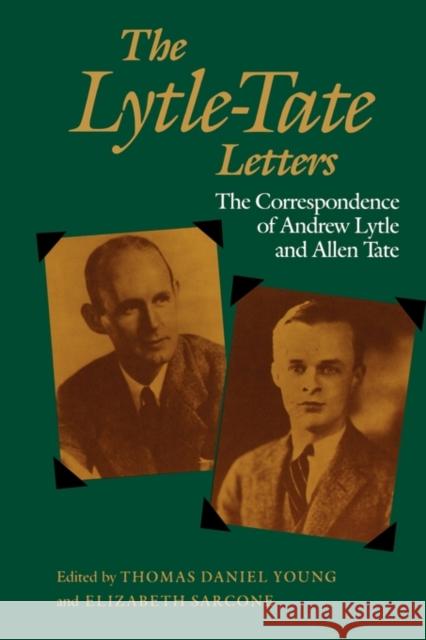The Lytle-Tate Letters: The Correspondence of Andrew Lytle and Allen Tate » książka
The Lytle-Tate Letters: The Correspondence of Andrew Lytle and Allen Tate
ISBN-13: 9781604735529 / Angielski / Miękka / 1987 / 450 str.
This is a remarkable collection of letters covering nearly four decades of correspondence between two of the South's foremost literary figures. The series began in 1927 when Tate invited Lytle, who was then a student at the Yale School of Drama, to visit him at his apartment at 27 Bank Street in New York. Although they were acquaintances through their involvement with the Fugitives at Vanderbilt, they had never been close friends because Lytle's association with the group occurred after Tate had left Nashville. But after Lytle's visit with Tate and his wife, Caroline Gordon, both the friendship and the correspondence grew. The letters in the long sequence of exchanges took on a different content and character during each of the decades. The early letters, those exchanged between 1927-1939, show the development of Tate and Lytle's relationship because of what they had in common--love for the South. These letters discuss plans for writing their southern biographies the two Agrarian symposia--I'll Take My Stand (1930), and Who Owns America? (1936), as well as Lytle's first novel, The Long Night (1936) and Tate's work on his novel, The Fathers. Although the letters of the forties deal with such basic questions as where each man should live and how he should support himself while he writes, their primary focus is first with Lytle's and then with Tate's editorship of The Sewanee Review. The letters of the fifties are by far the most valuable for literary commentary. In these Lytle reads and critiques many of Tate's essays and poems, and Tate, in turn, reads and responds to Lytle's plans for the novel he was to be so long in writing, The Velvet Horn. Although many letters in the final group--those of the sixties--are devoted to a discussion of Tate's guest editing the special T.S. Eliot issue of The Sewanee Review, these are also the letters which reveal the depth of the Lytle-Tate friendship. In these they share their personal problems and advise each other in the difficulties each is forced to face. Tate supports Lytle during the long illness and subsequent loss of his wife Edna and, later, during Lytle's own bout with cancer. Similarly, Lytle sees Tate through his divorce from his second wife and into his next marriage. After a short time, Lytle brings consolation in the loss of one of the Tates' infant twin sons. The correspondence between Tate and Lytle documents the evolution of a long personal and literary relationship between two men who helped shape a large part of modern southern literature.











